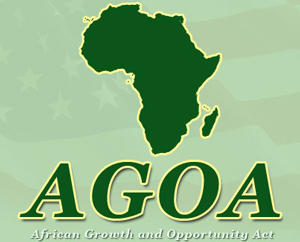
(FinalCall.com) – During the Honorable Minister Louis Farrakhan’s 1997 World Friendship Tour that included Liberia, he proclaimed even though Africa needs substantial assistance, it has the ability to help itself.
“Africa does not need to be a beggar at the foot of America, or at the foot of Europe,” Min. Farrakhan declared in response to a reporter’s question. “We made Europe, and we made America. Now it’s time for us to make ourselves. If they don’t give us any assistance, with the help of God, with the rich land that we (Africa) have under our feet, and the intelligence we have, we don’t need to be a beggar of anybody for assistance,;we’ve got it all in our hands.”
Up until last year, Africa was well on its way toward heeding Farrakhan’s prophetic words. Libyan Pan African leader Muammar Gadhafi was the principal force behind evolving the stagnant Organization of African Unity into a more productive African Union. He invested an estimated $150 billion in Africa and with a Libyan proposal on the table for an African Union Development Bank (AUDB), backed by $48 billion, the continent seemed on the road to economic independence.
Not only was the AUDB designed to overcome Africa’s economic dependence on Europe and America, Gadhafi’s Libya was the biggest obstacle to Africom (the U.S African Military Command) spreading its military tentacles throughout the continent. Gadhafi, according to news reports, offered cash incentives, to countries that rejected U.S. request for bases.
During a 2012 press conference in Port of Spain, Trinidad, Farrakhan expressed his chagrin concerning how the Obama administration used the Libyan invasion as a pretext for expanded insertion of Africom on the continent.
“I’m hurting for Africa,” he said. “Because now the United States has inserted Africom into Africa, soldiers are there, supposedly trying to track down Mr. (Joseph) Kony. But in reality it has nothing to do with the Lord’s Resistance Army (LRA’s less than 300 fractured troops are on the run). It has everything to do with the mineral strength of Central Africa. America will never be a super power in the 21st century if she doesn’t have access to those strategic metals and minerals.”
Not only was the overthrow and murder of Gadhafi used by the Obama administration to pave the way for the establishment of continent-wide military operations, it was also the pretext for revamping of the centerpiece of U.S. trade policy for Africa, through former President Bill Clinton’s African Growth & Opportunity Act (AGOA).
Last year U.S. Ambassador to the African Union Michael Battle revealed how U.S. super-power status was jeopardized. In a statement he stressed the “blunt urgency” of the administration’s agenda. “If we don’t invest on the African continent now, we will find that China and India have absorbed its resources without us, and we will wake up and wonder what happened to our golden opportunity of investment.”

That opportunity was fulfilled last year with Secretary of State Hillary Clinton’s five-day, three-country tour of Africa. The trip was designed, in part, to uproot economic development ties that sub-Saharan Africa had with Gadhafi and replanting American interests through giving economic assistance to the resource rich continent. During a speech at African Union headquarters in Addis Ababa, she chided African heads of state like little children, warning authoritarian regimes were “no longer acceptable” and those who refused to submit to Western ideas of democratic reform would find themselves “on the wrong side of history.”
In a letter written by Barack Obama entitled, “Enterprise for Development: A New Policy Approach Towards Africa,” and read by Clinton’s fellow traveler, U.S. Trade Representative Ambassador Kirk in Zambia, America’s 44th president wrote his administrations objective was to extend and expand President Bill Clinton’s 2000 AGOA initiative to 2025.
What AGOA claims are reduced trade barriers of American markets would be a boon for African exporters. But if you look at the actual trade policy you’ll find more symbol than substance, more “sugary rhetoric of American benevolence” for the welfare of Africa than is actually provided, according to Jason Hickel in a 2011 edition of Pambazuka News.
The catch Hickel writes is the U.S. president “reserves the right to reevaluate” eligibility in AGOA on an annual basis.
In addition each country has to meet a set of stringent conditions. “Topping the list is the requirement that the beneficiary promote ‘a market-based economy that protects private property rights … and minimizes government interference in the economy through such measures as price controls, subsidies, and government ownership of economic assets.’ In addition … the beneficiary must make progress toward ‘the elimination of barriers to U.S. trade and investment.’ ”
What this means is AGOA eligibility requires the “outright destruction” of all tariff protections, by “flinging open African markets to a flood of American goods that inevitably undermine local industry,” said the publication.
The real objective of AGOA, that’s not mentioned, is to “pry open” and exploit new markets for American goods and to nullify barriers that could obstruct U.S companies like Exxon, Shell, and Anglo-American, from extracting Africa’s rich oil and mineral reserves.
During Min. Farrakhan’s press conference in Trinidad, he warned African leaders against weakness and cowardice and an unwillingness to take a principled stand. He condemned “weak, cowardly leadership that is so frightened of North America and Europe that you allow yourself to be trodden under foot, so that the next generation receives nothing but the legacy of cowardice.”
“So yes I would like to add the Nation of Islam to Africa’s development,” Farrakhan added. “But right now poor Africa has to get her head in the right direction.”
(Jehron Muhammad writes from Philadelphia and can be reached at [email protected])












